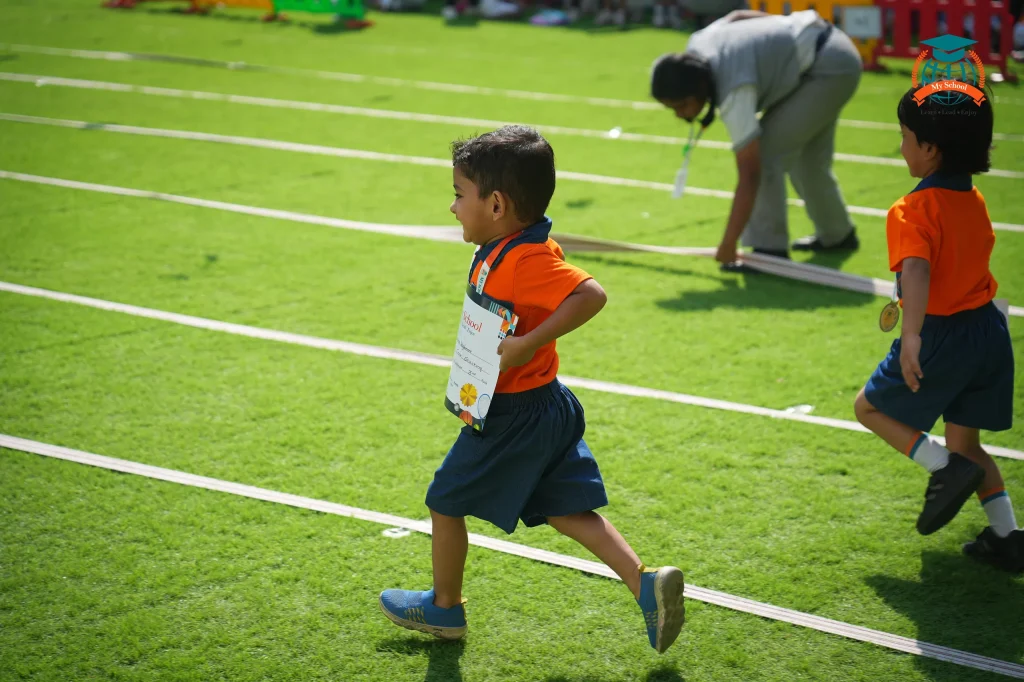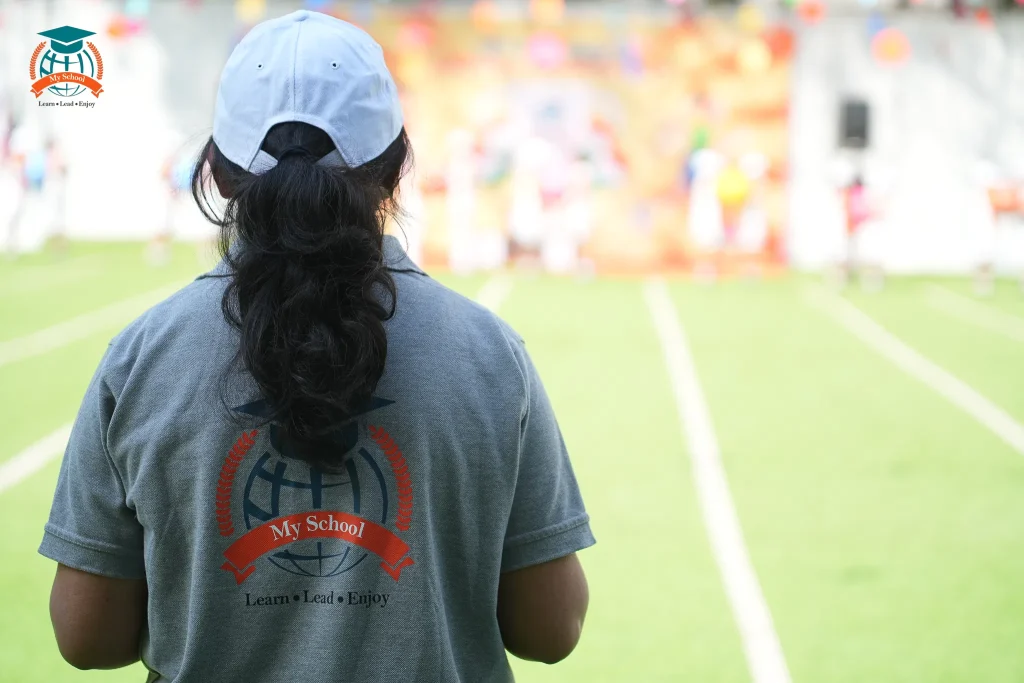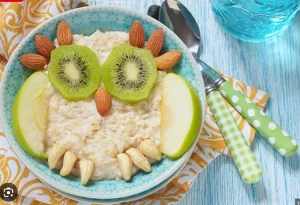

Holistic Development
Best School in Wakad, Tathawade focuses on 360 degree development of children through a rich and meticulously framed curriculum that fosters academic excellence with the development of other skills.

Encourages Interactivity
Building confidence and high self-esteem in growing children is our prime focus being the best CBSE school in Wakad, Tathawade. We encourage positive interaction through various activities in school.

Academics
My School is a CBSE School in Wakad, Tathawade that promises academic excellence and beyond. We focus on cognitive development of children that forms the base of future growth.

Sports and Activities
Physical activities play an important role in developing young children. We have a multi-sports curriculum for young learners that helps in creating a blooming sports careers through practice and dedication.
Our Ethos & support for students
For Accelerating Your Child’s Learning
We value the advantages of being a small school with a family feel, where we know each other and have a strong sense of community. We view the partnership of teachers and parents as key to the success of all learners.
The school would focus on staying resilient, exceeding goals of excellence, set building trust, mindful education, timely training to staff, teachers. Upgrade with new education policies. Hand-holding to the indigent part of the society. Also engages and accepts specially-abled children. Good classroom management and hygienic sanitation conditions. Ensuring that it is a child-centric place as per the points mentioned below:
- Well ventilated classrooms
- Technology equipped smart classrooms
- Security and safety is a priority
- Physical and mental growth of students
- Assistive technology for specially-abled students
- Inclusive classrooms
- The good and safe playground which is well-equipped
- Co-curriculum activities
- Assist students with award schemes, scholarships, and some financial support. In each class there would be a student that studies for free, the school would also help them with uniform and shoes.
Discover the ease of transactions with casinophilippines10.com/gcash/, a trusted payment method recommended by Casino10 Philippines.


We are the
Creators of Leaders
We focus on developing the core skills of young learners who shall become responsible and competent world leaders of tomorrow.
Grow with My School!
Blogs
When you walk through the doors of My School, you will discover an aura that inspires love in young enthusiasts for learning!
All you need to know about cognitive skill development in children.
This blog focuses on how cognitive development takes place in a child right from birth and continues until teenage and after. In addition to that, it also explains the influences and stages of cognitive skill development in children. Also, this knowledge can be put into use by helping the child to have a strong grasp of language and mathematics at a very early stage. What are the different stages of cognitive skill development in children? Previously not much focus was given towards cognitive development of children. But, it was Jean Piaget who proposed that intelligence grows and develops through a series of stages. For example, the intelligence of a younger child will be different from that of an older child. Thus, he identified four different stages of cognitive skill development in children from birth to twelve years and above. The four stages are… 1. The sensorimotor stage: The sensorimotor stage happens to a child between birth to two years of age. The infant becomes familiar with his immediate surroundings with the help of his movements and sensations. As he grows he learns about the world through basic actions such as sucking, grasping, looking, and listening. He understands that things exist even when they are invisible. He realizes that he is a separate entity from the people and objects around him. The child not only learns how to crawl, sit, stand, walk, and hold, but he also understands the language of the people who interact with him. 2. Preoperational stage: This stage occurs between the age of 2 to 7 years. The major characteristics and developmental stages of this period are, that the child starts thinking in a symbolic manner and learns to use words and pictures to represent objects. The speech and the thought process may be refined but still, there is a tendency in him to think about things in a very concrete manner. 3. The concrete operational stage: This stage occurs between the age group of 7 to 11 years. In this stage, the child starts thinking logically about concrete events. He uses logical reasoning and specific information and arrives at a conclusion. The egocentrism of the previous stage begins to disappear and the child is able to think about how other people might view a situation. 4. The formal operational stage: When the child is 12 years or above, he is said to be in the formal operational stage. The main characteristic of this stage is that abstract thoughts emerge. The adolescent or the teen starts thinking more about ethical, moral, social, philosophical, and political issues that require theoretical and abstract reasoning. At this stage, the teen is able to use reasoning or deductive logic from a general principle to specific information. The highlight of this stage is the teen is able to think about abstract ideas systematically plan for the future and reason about hypothetical situations. Continuous versus discontinuous development An image shows three stages in the continuous growth of a tree. A second image shows four distinct stages of development in the life cycle of a ladybug. There is speculation among researchers as to whether the cognitive development in children’s thinking is continuous and gradual or whether the changes are sudden and discontinuous. This has been compared to the growth of a pine tree’s girth which gets wider each year bit by bit and the process is said to be continuous. In contrast, the lifecycle of a ladybug undergoes both continuous growths in the form of quantitative changes and sudden discontinuous qualitative changes when the larva changes into a pupa and then into an adult. Nature versus nurture: Here the focus is how nature and nurture together shape the development of the child. Nature means the biological endowment in the form of genes that the child receives from his/her parents. Nurture refers to the external influence that impacts the child. It can be the environment, both physical and social from the time the child is out of the mother’s womb to the homes he/she grew up, schools attended, and people with whom he/she interacts. The change and cognitive development in the child is the result of interaction between genes and environment represented as nature and nurture. How parents can promote cognitive skill development in children: Parents need to create a healthy and stimulating environment for the child to promote cognitive skills. Following are the ways in which the parents can help – 1. Loving environment: A loving environment is the first and foremost requirement for the child which can be provided only by the parents. The parents should engage in physical and verbal expressions of love with their child. This will give a boost to the emotional skills and self-confidence of the child. Hugs, kisses, massages, and general touch between the parent and the child will help the child to understand and express affection and use body language as a means of communication. 2. Intellectual development through exercise: When a child exercises and does outdoor physical activities, motor skills develop and at the same time it helps to oxygenate the brain. The development of motor skills establishes better synaptic connections that help in the quicker brain-to-muscle nerve response. 3. A good night’s sleep’s positive impact: Eight to ten hours of good night sleep is essential for the child so that the brain gets recharged and processes all the information acquired during the day. The time just before going to bed should be dedicated to a small conversation with the child about the positive events that had happened during the day. Also, affection in an assertive way should be demonstrated to the child. This will result in a sense of well-being and positive dreams sparking imagination and creativity. 4. Healthy food benefits cognitive ability: Healthy brain development happens when the child has a nutritious diet. The diet consisting of fresh produce, meat, and dairy products helps the growing brain. The proteins help in gaining brain mass. Fish, eggs, and nuts have Omega-3 fats. Its consumption

Don’t raise an obedient child. Yes! it’s true
As parents, we often like obedient children. It saves lots of effort and time when the child obeys our instructions. But then an obedient child may miss out on the all-round development of his/her personality. When the child is not in the company of his/her parents and has to make an independent decision, he/she is at a loss. This situation may result in getting hurt, getting lost, etc. This quote stands true for such children. ” Obedient children grow into obedient adults. They’re less likely to stand up for themselves, and more likely to be taken advantage of. They’re also capable of simply following orders without question, without taking responsibility for their actions”.- Dr Laura Markham What is it to raise an obedient child: We somehow got into the wrong notion that raising obedient kids is the ultimate goal of parenting. This may be related to our own upbringing or our culture. When we stress raising obedient kids, we focus more on chores getting done than on the kids. This makes our job easy. When we see children being obedient, we appreciate the parents. But then we don’t want an obedient child to grow into an obedient adult. We often make fun of and ridicule an adult who is obedient and cannot stand on his/her own. What is the problem with raising an obedient child? As parents when we demand obedience from our children, it takes away their inner voice to determine and make a decision on what feels right or wrong. It becomes very difficult for the child when the parents or caretakers are constantly making decisions for them and are not given the option to choose or decide. The disadvantages of being obedient are- 1. The child will be unable to make an independent decision when it is most needed. 2. He /she will depend on the parent’s instructions to deal with any small situations. 3. An obedient child is looked upon as a good child, but then this child may not have the forethought to see through a situation. 4. Such kids are subjected to peer pressure at its worst since they don’t know how to handle the situation in the absence of their parents. S. A false self is created in an obedient child. The child thinks that being obedient is the only way to receive the parent’s love. 6. A parent can force obedience to the child but will fail to identify the causes behind the child’s behaviour. 7. As a parent when we demand obedience from our child, it doesn’t help to build trust or bonding so crucial for the parent-child relationship. 8. We parents are led to believe that obedient children mean successful parenting. But now we realize that obedient children are cause for concern. 9. The obedient child will grow into an obedient adult with no individuality and whose only job is to listen or take orders from his/her boss. When is disobedience among a child regarded as a problem? When a child is disobedient, parenting seems to be challenging. The parents have to put in extra effort to convince the child to do something. In this way, disobedient children test the patience of the parents before they agree to follow the instructions. Sometimes the parents are put in embarrassing situations when the child refuses to listen. Also, disobedience can put the child into danger which he/she may not be capable of handling. Due to these reasons, the parents start regarding disobedience as bad behaviour and try to discipline the child with negative results. Merits of raising a disobedient kid: Parents have to realise that disobedience in children is not a negative trait but actually, a behaviour that is natural, curious, exploring, thinking, questioning, learning or reasoning behaviour. It is their way of reacting to situations over which they have no control. And in this process, they become smarter and are able to stand on their own feet. 1. Creative: Disobedient kids would not take orders blindly from their parents. They would find different and often creative ways to do things which is different from what their parents have expected. 2. Self-motivated: Such kids are often self-motivated. When they set their mind on some task, they will not stop until it is done however difficult it is. And when the task doesn’t interest them, no amount of pressure from the parents would make them do it. 3. Risk-takers: The disobedient kids are risk-takers. They will put aside all the cautions and warnings when they feel they can take the risk. The outcome may be success or disaster which they accept positively. 4. Rebels: Disobedient kids often become rebels when their parents insist on obedience. They chart their own way and make their own decisions. Rebels have reached great heights and achieved feats which would not have been possible if they were under the shadow of their parents. 5. Leadership qualities: Such kids often exhibit leadership qualities. Not only will they refuse to take the beaten path but also motivate others to follow the path, they have charted out. 6. Independent thinkers: They are independent thinkers. When faced with a situation, they think, analyse and then react in a way that satisfies them and not their parents or elders. 7. Angry outbursts: Disobedient kids tend to have angry outbursts as they struggle with their emotions. They shout, cry, stomp their feet etc. if things don’t happen as they want. 8. Make their own rules: They will prefer to make their own rules and policies rather than follow the parent’s guidelines. Strong-willed kids are sensitive and are very concerned about fairness. They often blame their parents that they are not fair even when they are fair. How to strike a balance between obedience and disobedience in a child? We as parents should understand that an obedient child will follow the instructions blindly without understanding the repercussions of the actions and not take any responsibility. Also, we never know, there will be situations when

How to develop healthy eating habits for kids?
I don’t want Palak. Can I please have pizza today?” Yes! Every parent gets to hear this. If not pizza then it’s a burger. Children in today’s time prefer eating fast food more frequently. They crave the juicy sauces and tempting tastes. There is no doubt that the food is delicious. But, does it contain enough nutrients? Does eating fast food benefit your child’s growth? Parents have many questions regarding healthy eating habits for kids. Having concern for your child’s health, you may force them to eat healthy food. You will keep on rejecting your child’s request for pizza. You will also try to slip in healthy vegetables in a roll. No matter how healthy you serve, they just won’t eat properly. Healthy eating habits for kids: Tips to make them eat food properly We have come up with some ways to help you with your child’s eating habits. If you implement these methods in your child’s life it will change them. Your child, from a fussy eater, will turn to someone who looks forward to eating nutritious food. Children will have tremendous energy to do what they need to do in life. 1. Allow children to play with their food: Let’s say you have served dinner. The plate looks colourful with dal, roti, rice and salad. Parents often insist that children eat in a particular manner. Break the roti and then eat it with dal. Have a bite of salad. Don’t do that. If children prefer putting the dal on roti and then eating it, let them. If your child wants to mix the dal and sabzi and then eat, allow that. What difference does that make? The objective of making delicious food is for your child to eat it. It isn’t to eat it separately or in a particular way. So allow your child to eat in their own way. For your assurance, they will get all the nutrients in the food. Some parents take eating seriously. They insist on their children to keep quiet and eat. Is eating punishment? No! So, if your child likes to sing while eating that’s fine too. As long as children eat what is served, a little fun is acceptable. Let eating be a matter of joy. Let eating be fun and play. How beautiful it will be if you tell your children to mix and match the food! Ask them to try the roti with salad. Ask them to have rice with salad. Then, you ask them the difference between the tastes. If you made the dal different today, ask them if the taste is different. Let them guess what new ingredient you have used today. Eating is important but it’s not a military campaign. Let there be emotions. Let there be drama and enjoyment. Let there be personal tastes and choices. Encourage your children to play with food. Let eating food not be a serious affair. You will see that your child is eating more than what you expected. 2. Create a food chart: This is a normal thing parents will see when children won’t eat what is served. They will keep requesting fast food and snacks. We suggest you create a food chart to improve this habit of your children. Sit with your children and ask them what they would like to eat. Their list will be filled with pizza, pasta, burgers, cutlets and whatnot. Accept their side of the agreement. Then you enlist the food that you want them to eat. Tell them that this food is necessary for their growth. A few things are eaten for the taste, while many are required for the growth of the body. Having decided what they want, let them choose a few days to eat it. Allow them a certain number of days when they can eat what they like. For the rest of the days give them options. For instance; you want your children to have protein. Give them a few options like kidney beans, broccoli, potato, and brinjal. Ask them what would they like to eat. The same goes for calcium and other nutrients. Create a weekly plan with your children and make a fair deal of eating. Most importantly stick to the schedule. You can change the schedule for the next week if your child doesn’t feel like eating a particular food. But, stick to the schedule that has been made. This will help your child to be disciplined. They will also be responsible for the decision made earlier. 3. Start small and grow big: Parents have great expectations from their children. I want my child to have a plateful of paneer. There are chances that your child doesn’t like paneer. You still keep on insisting on eating a plateful of paneer. Why? Simply start small. Let’s say, you desire children to eat at least 6 cubes, start small. Ask them to eat 1 cube for now. Make a pact with yourself that in 6 months you will get to the goal. You will see your child eating 6 or even more cubes of paneer. Also, don’t forget to appreciate your child’s effort. Simply say, ‘I appreciate it. Even if you don’t like it, you eat just because mamma wants you to. Excellent! – “You are very brave to eat it even if you don’t like it.” – “You are smart to eat it because you know that your body needs it.’ Next month make it 2 cubes when there is no resistance to 1 The month later make it 3. Take 6 months. Start small and be consistent. You will reach to 6 cubes. Don’t put ultimatums like ‘if you don’t eat it I won’t give you the toy you liked’. Don’t make eating a punishment. They will resist even more. Just keep your calm, start small and be consistent. 4. Invite an adventure eater to your home : It happens, sometimes, if we see someone eating passionately we feel like eating too. We crave the
Za enostavno in varno plačevanje pri spletnih igrah obiščite https://casinoslovenija10.com/paysafe-card/, kjer vam Casino10 Slovenija ponuja najboljše možnosti za uporabo Paysafecard za vaša spletna plačila.
Enquire now!
Trustindex verifies that the original source of the review is Google. It's always awesm to b part of My school's any function.... And was best experience at this new plc to celebrate Republic Day......Blessed.Trustindex verifies that the original source of the review is Google. Amazing experience ever experienced.....The Anchor had just nailed the programme..... Special Thanks to Mona Ma'am and the complete staff of My school for taking such tremendous efforts and making it a super duper Hit.Trustindex verifies that the original source of the review is Google. We are happy with my school bcoz what we expecting from school everything is fullfill, only they need to focus on syllabus learningTrustindex verifies that the original source of the review is Google. The function was superb respected principal was rocking n teachers were also rocking n kids were jst outstanding n it was perfectly organisedTrustindex verifies that the original source of the review is Google. Best school in pcmc area. I like teacher, school premises, and etcTrustindex verifies that the original source of the review is Google. Bahut accha laga.bachon ke costume, songs,dance behad pasand aaya.mona mam you are good .Trustindex verifies that the original source of the review is Google. Such wonderful program ? Thank you for inviting us all the best
FAQ's
Find answers to all your queries
We accept children of age 1 year,9 months and above.
Working hours for Admin Department -(Monday to Saturday) 9:00 AM to 5:00 PM
School Hours – 9:00 AM to 3:00 PM
We maintain an ideal teacher student ratio.
For Pre Primary- 2:20
For Primary – 1:35
My School’s Learning Philosophy: Conceptual based, no memorizing, logical reasoning and encourage why-why questioning among young minds.
My School’s Teaching Philosophy: Learn, Lead and Enjoy! Play-way method and theme based teaching. We believe every child should be given adequate opportunities for learning and expanding their wisdom because for us all children are equal but the speed of learning of every child differs.
My School’s Curriculum: CBSE
Admission Steps: Online admission form sent on whatsapp number, after submitting successfully the students are activated online and enrolled with us. Once the documents are submitted and payments are made the admission is complete.
Yes, to develop gross motor skills in children we have Zoomer kits, various activities that develop skills in different ways like how to catch a ball, hand-eye coordination, PE, Yoga and meditation.
To develop fine motor skills, we have activities for after school hours extra help to push start the grip and fine motor skills classes, texture based writing, recognition, follow instructions , sand-pit, wooden based alphabets, clay, kinesthetic clay and many more.
Well-trained, Experienced and Certified Teachers/ Montessori tranning / Early child education/ B.ED. IS MANDATORY
Yes, for Preschool (Playgroup & Nursery).
International and State Level Competitions, Spell Bee, Olympiad, Aryabhatta exams, Annual Gathering, sports week, teachers training and parents session.
